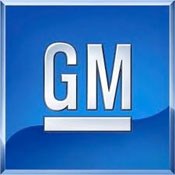
Top stories






More news















Logistics & Transport
Maersk reroutes sailings around Africa amid Red Sea constraints



German motor companies have traditionally been aggressive in expressing their frustrations with SA's policy. Local and German executives at BMW, Mercedes-Benz and Volkswagen have rarely shied away from saying what they think. In public, at least, their Japanese and American counterparts have been more diplomatic.
US-based manufacturing giant GM - with plants in SA, Egypt and Kenya - has consolidated all its African activities into a single management region based in Port Elizabeth and will co-ordinate its operations from there.
But there are some concerns about circumstances which could make the SA motor industry uncompetitive if not dealt with promptly. The industry's lifeblood will increasingly be exports, but SA is up against fierce rivals like China, Thailand and Eastern Europe.
SA does itself no favours, says Spangenberg referring to the country's strike-prone labour environment and rising production costs. "Electricity, once cheap by international standards, is now expensive. Skills creation is hampered by a poor education system. Local components suppliers struggle to be cost-competitive," he says.
The situation has already hurt the local GMSA subsidiary. When it launched local production of the Spark small car early last year, the plan was to build for domestic and export demand. Australia and the UK were prime targets. But GMSA "couldn't meet their price positioning". The SA Spark cost too much to build. Instead of the planned 10,000 annual production, GMSA built 7,000.
That means the only export product is the new Isuzu KB bakkie range, launched last week. While other local bakkie manufacturers have been sending thousands of vehicles all over Africa for years, GMSA has been slow to join them. "Our export history out of SA has been miserable," Spangenberg admits.
The new Isuzu will be built in right- and left-hand-drive for export to 46 markets in sub-Saharan Africa. Sales will begin in July.
There could also be opportunities in North Africa plus, bizarrely, Iraq, which has been added to GM's Africa region. Maybe no-one else wanted it.
The export programme is important. Total new-vehicle sales in Africa last year were about 1,5m. GM accounted for about 180,000. Spangenberg thinks the market could top 2m within four years, then just as quickly approach 2,5m units.
That's a drop in the global ocean: in 2012, global sales of light vehicles alone topped 80m. But Africa is a strange case. Planning vice-president Ian Nicholls says new vehicles are outsold seven-to-one by used vehicles and dumped grey imports. Multinationals want to be ready for the day when economic conditions allow consumers to switch from buying used vehicles to buying new ones.
Spangenberg says: "After the Bric countries (Brazil, Russia, India and China), the only market left to develop is Africa. With our three manufacturing plants on the continent, we must find a way to benefit."
The new Isuzu is the last leg of a R1bn GMSA investment into new products since 2011, having previously introduced the Spark and Chevrolet Corsa bakkie.
GMSA built about 45,000 vehicles in 2012 - lower than expected because of the failed Spark export programme. It won't be much better this year. Nicholls says GMSA won't meet the 50,000 minimum assembly required for incentives under the new automotive production and development programme (APDP), which started in January
It won't be penalised, however: APDP rules allow for companies to fall short if they are running down production of an old vehicle and preparing for a new one - as with the Isuzu. So GMSA has a grace period for this year.
Source: Financial Mail via I-Net Bridge

For more than two decades, I-Net Bridge has been one of South Africa’s preferred electronic providers of innovative solutions, data of the highest calibre, reliable platforms and excellent supporting systems. Our products include workstations, web applications and data feeds packaged with in-depth news and powerful analytical tools empowering clients to make meaningful decisions.
We pride ourselves on our wide variety of in-house skills, encompassing multiple platforms and applications. These skills enable us to not only function as a first class facility, but also design, implement and support all our client needs at a level that confirms I-Net Bridge a leader in its field.
Go to: http://www.inet.co.za